第25章
1
LET us speak next of liberality. It seems to be the mean with regard to wealth; for the liberal man is praised not in respect of military matters, nor of those in respect of which the temrate man is praised, nor of judicial decisions, but with regard to the giving and taking of wealth, and especially in respect of giving. Now by 'wealth' we mean all the things whose value is measured by money.
Further, prodigality and meanness are excesses and defects with regard to wealth; and meanness we always impute to those who care more than they ought for wealth, but we sometimes apply the word 'prodigality'
in a complex sense; for we call those men prodigals who are incontinent and spend money on self-indulgence. Hence also they are thought the poorest characters; for they combine more vices than one. Therefore the application of the word to them is not its proper use; for a 'prodigal' means a man who has a single evil quality, that of wasting his substance; since a prodigal is one who is being ruined by his own fault, and the wasting of substance is thought to be a sort of ruining of oneself, life being held to depend on possession of substance.
This, then, is the sense in which we take the word 'prodigality'.
Now the things that have a use may be used either well or badly; and riches is a useful thing; and everything is used best by the man who has the virtue concerned with it; riches, therefore, will be used best by the man who has the virtue concerned with wealth; and this is the liberal man. Now spending and giving seem to be the using of wealth;taking and keeping rather the possession of it. Hence it is more the mark of the liberal man to give to the right people than to take from the right sources and not to take from the wrong. For it is more characteristic of virtue to do good than to have good done to one, and more characteristic to do what is noble than not to do what is base; and it is not hard to see that giving implies doing good and doing what is noble, and taking implies having good done to one or not acting basely. And gratitude is felt towards him who gives, not towards him who does not take, and praise also is bestowed more on him. It is easier, also, not to take than to give; for men are apter to give away their own too little than to take what is another's.
Givers, too, are called liberal; but those who do not take are not praised for liberality but rather for justice; while those who take are hardly praised at all. And the liberal are almost the most loved of all virtuous characters, since they are useful; and this depends on their giving.
Now virtuous actions are noble and done for the sake of the noble.